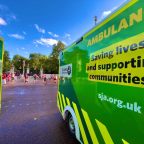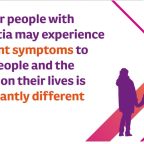
Do games help the brain overcome the effects of Covid?
There is an interesting question brewing in the medical world: Can online brain training games help combat cognitive impairment caused by long-term COVID-19? Scientists set out to find the answer.
Prolonged COVID-19 has become a serious problem for many people with a coronavirus infection. This syndrome is characterized by a multitude of symptoms, especially disturbing are memory and attention disorders. Such changes can significantly affect quality of life and performance.
A group of researchers from the University of Exeter decided to test the effectiveness of online brain training games in combating cognitive problems after COVID-19. The project is called BEACON and will run for six months.
How will the study be conducted?
The BEACON study is planned to be conducted entirely online. Participants will be able to complete all tasks from the comfort of their own homes. This is convenient and safe, especially for people with impaired health.
Scientists invite adults who have experienced COVID-19 and are concerned about the state of their brains to participate. A unique program has been developed for them:
- play sessions for 10 minutes three times a week;
- cognitive tests at the beginning of the study, after six weeks and at the end;
- the total duration of the experiment is six months.
Such games have already shown positive results in older people with early signs of cognitive decline. The researchers want to test whether the same effect will be seen in people with post-cognitive decline.
Why it matters
Despite advances in Covid-19 treatment and vaccination, long-term Covid remains a problem. Many people continue to experience a variety of symptoms after recovery:
- severe fatigue;
- shortness of breath;
- muscle aches;
- memory problems;
- difficulty concentrating.
These symptoms can significantly interfere with the return to everyday life. Therefore, finding effective treatments for cognitive impairment in long-term COVID-19 is essential.
Can all games be effective?
In general, games, regardless of genre, activate similar areas in the brain and, therefore, can have a similar therapeutic effect. In this case, people can choose the types of game entertainment that will suit their tastes. After all, playing a game you do not like is objectively difficult.
Separately, we would like to note gambling entertainment, which recently has been mostly present in digital format and, therefore, has many similarities with other online games. The popularity of betting and online casinos is so great that they are played even by those who have not previously been fond of gambling entertainment.
We have researched the market and found the most incredible variety of games at 1win, Parimatch and Melbet. Many of these games can be run in demo mode for free, enjoying gameplay without risking your money. To experience the thrill of the game, you need to register and activate the 1win voucher code for today and then get the bonuses.
The question is, can gambling games have the same effect? Or do the financial risks prevent them from having such a positive effect on the brains of COVID-19 survivors? Research on this topic has yet to be conducted.
Research Perspectives
Professor Anna Corbett of the University of Exeter notes the potential of online games for brain training:
"If the games prove effective, it would be a great solution. They are easy to distribute to large numbers of people and relatively inexpensive."
The National Institute for Health and Care Research funds the study. The project involves experts from the University of Exeter Medical School, the Royal Devon University Health Foundation and the Primary Care Centers Network.
The results of the BEACON study could open up new possibilities for rehabilitation for people with long-term COVID-19. If online brain training games prove effective, they could become an affordable and convenient way to improve cognitive function for many patients.
Let's monitor the development of this interesting project and hope for positive results. Perhaps simple games will become a powerful tool in combating the effects of COVID-19 on our brains.
In addition to this research, American scientists from Utah have realized a similar project. Researchers from the University of Utah Health conducted a trial called RECOVER-NEURO. As part of this study, they tried to see if brain training games could be helpful in treating "brain fog," which occurs in 10-30% of those infected with COVID-19.














